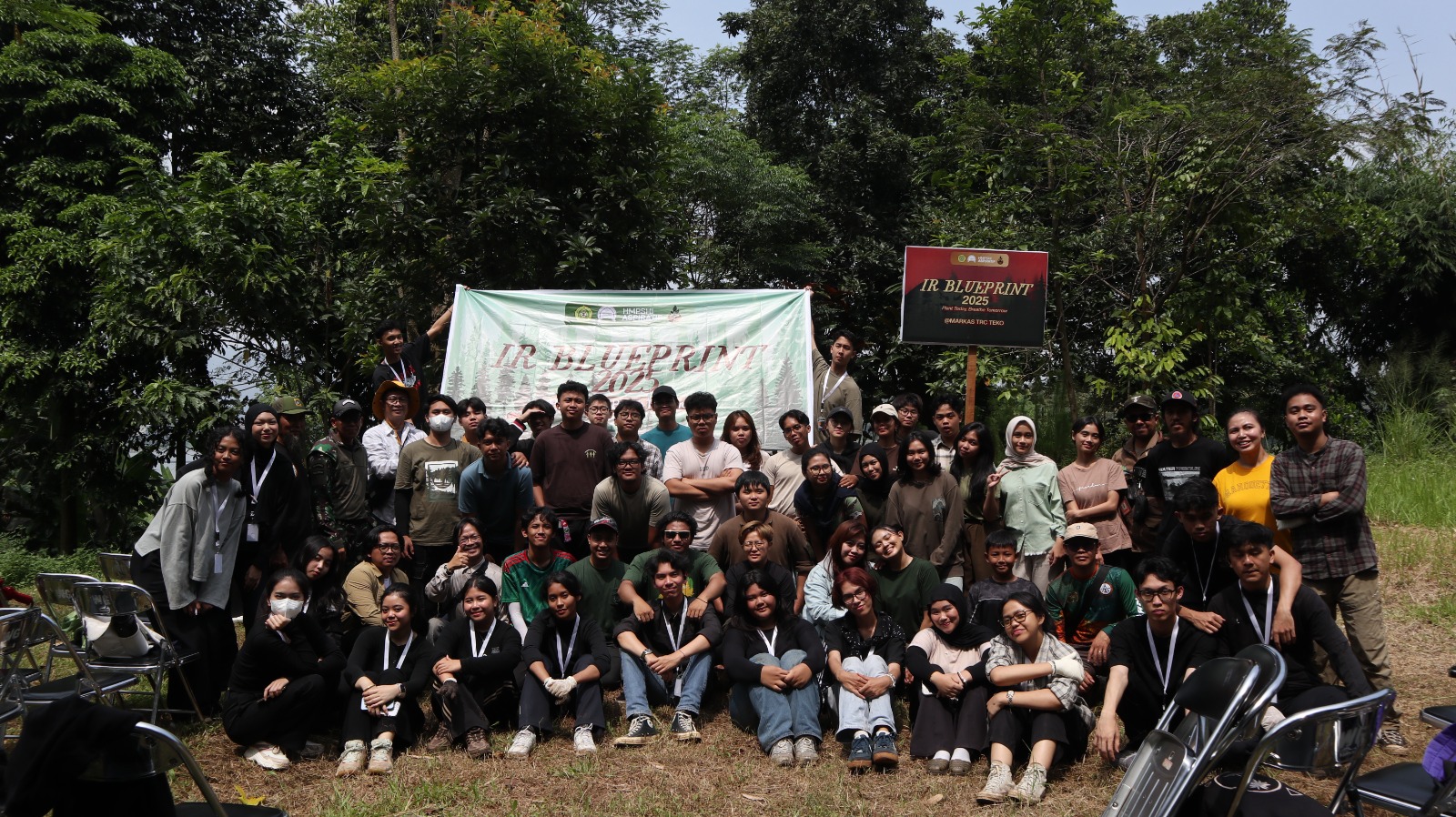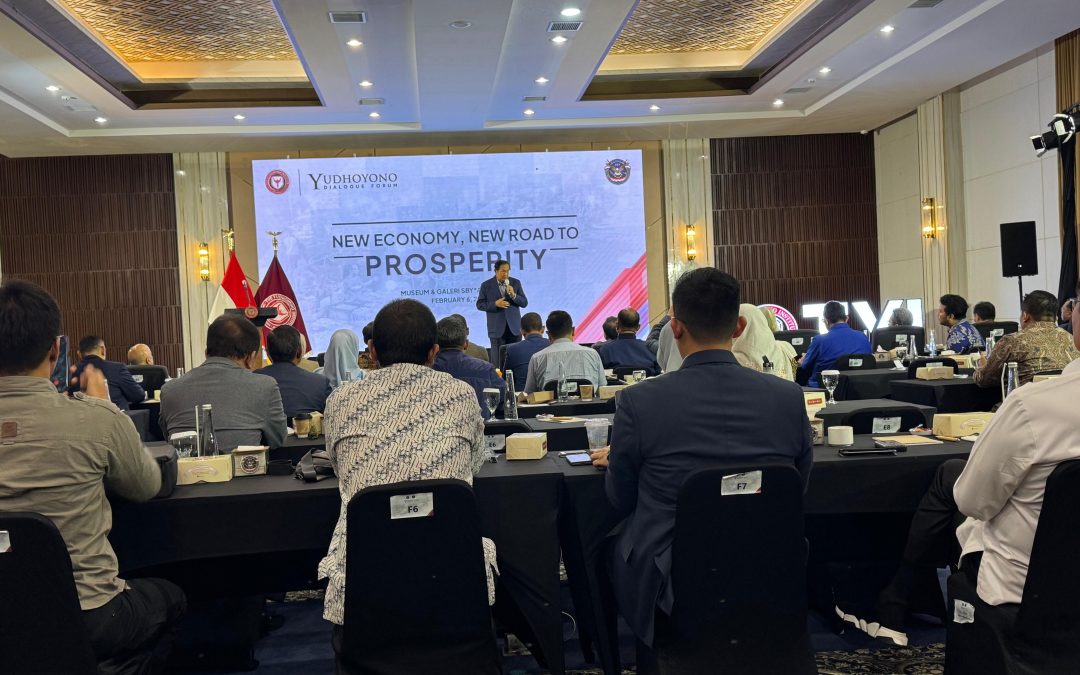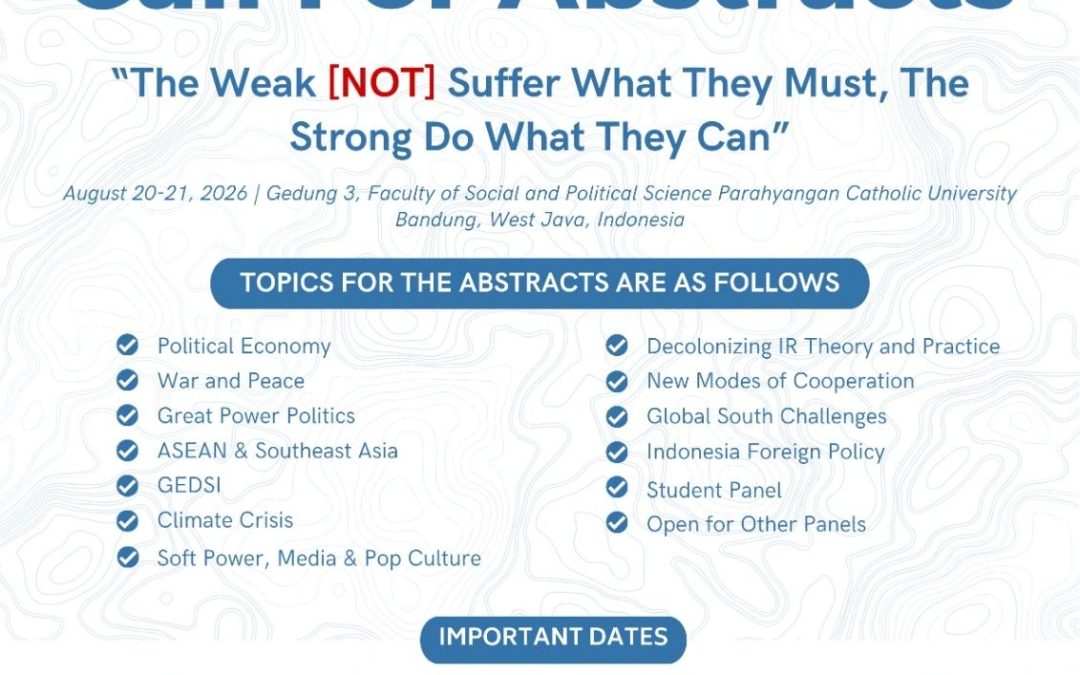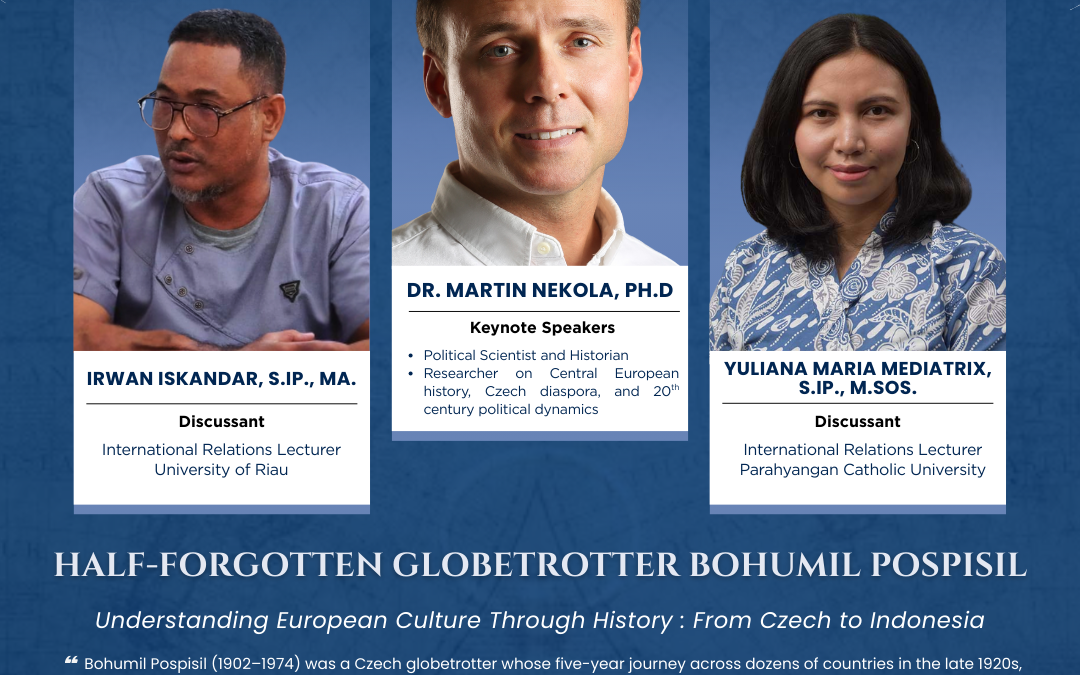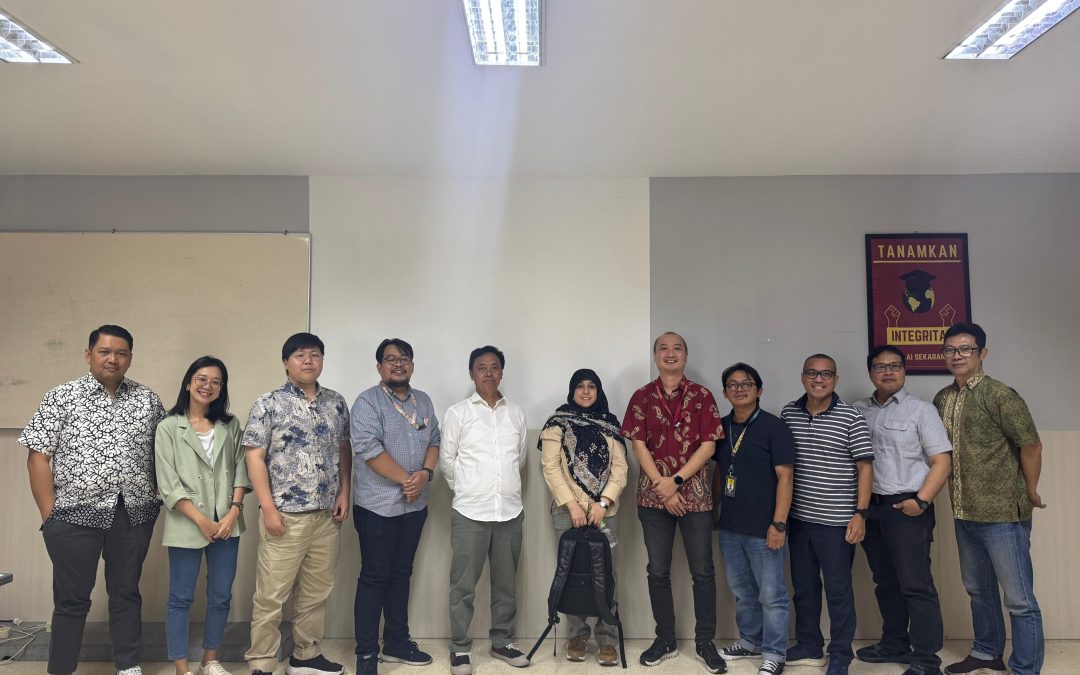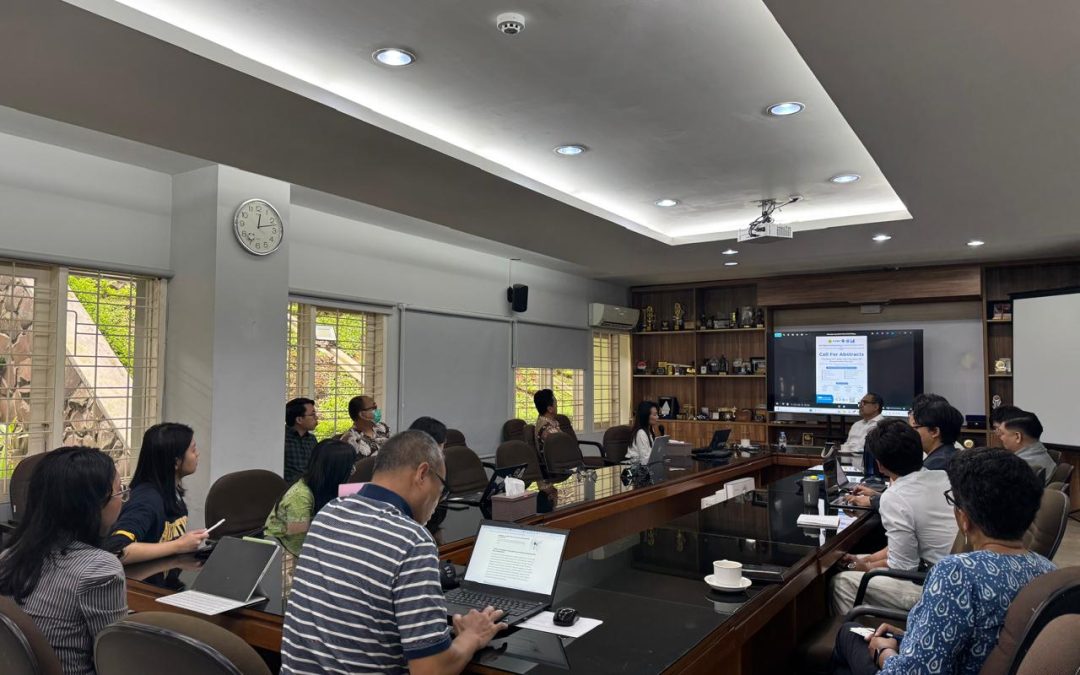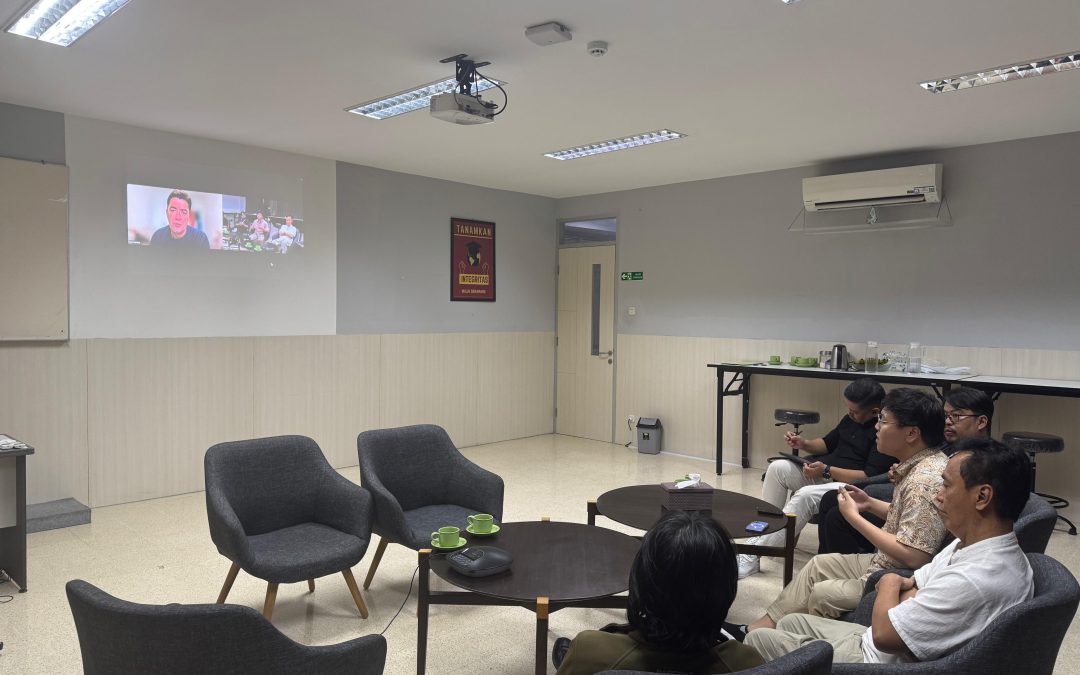As a demonstration of commitment to environmental conservation and efforts to address climate change, the International Relations Department at Parahyangan Catholic University (HI UNPAR) organized a community service activity titled “IR Blueprints 2025” or IRBP on Saturday, April 12, 2025. The event took place in the Citarum River Basin, specifically in Sector IX Citarum Harum, involving the Citarum Harum, Citarum Sehat Community Service Team and the External Division of HMPSHI UNPAR, along with the organizing committee collaborating with TRC TEKO Citarum.
The event was attended by faculty members from the Citarum Harum, Citarum Sehat Community Service Team, including Yuliana M. Mediatrix, S.IP., M.Sos, as the team leader, along with members: Dr. A. Irawan J. Hartono, Dr. I Nyoman Sudira, and Maria Alpha Carmelite, S.IP., M. Hub. Int. Several faculty members also participated as main speakers, including Annisa Paramita Wiharani, S.I.P., M.A., who presented on the relevance of the SDGs, particularly SDG 13 focused on Climate Action, and Dr. Stanislaus Risadi Apresian, S.IP., M.A., addressing strategic issues surrounding climate change, including the challenges faced and various mitigation approaches that can be implemented at the local level.
This activity was attended by around 30 UNPAR International Relations students and 18 organizing committee members, and supported by the TRC TEKO Citarum team led by Mr. Udin, a member of Kopassus, and partners from Healthy Harvest who contributed to providing technical education on tree planting, including the use of organic fertilizers and bio-compound solutions.
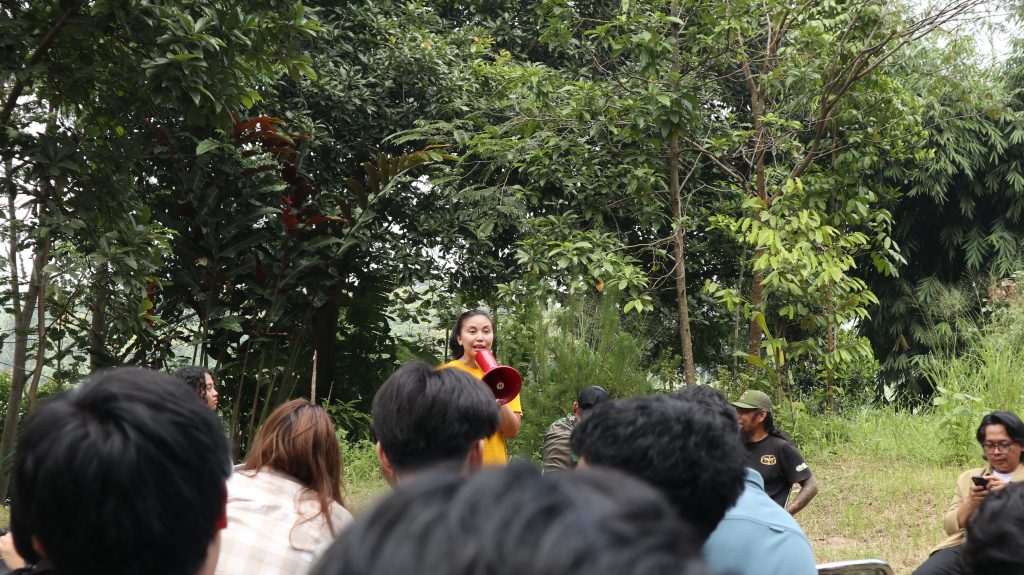
With the theme “Climate Change: Our Future Ahead,” IRBP 2025 aims to build critical awareness among students about environmental issues and encourage their active participation in preserving the local ecosystem. According to Maria Alpha Carmelite, this activity also serves as an educational medium to highlight that the environment where we live is not entirely clean and healthy, emphasizing the importance of collective responsibility in preserving it. Although some schools around the Citarum River Basin have introduced the 3R concept (Reduce, Reuse, Recycle), practices at the community level still face various challenges, making community engagement crucial in the next phase.
The series of activities in the IRBP included seminars, interactive discussions on climate change and global warming, as well as demonstrations of tree planting techniques. The highlight of the event was a simultaneous tree planting action by all participants along the banks of the Citarum River.
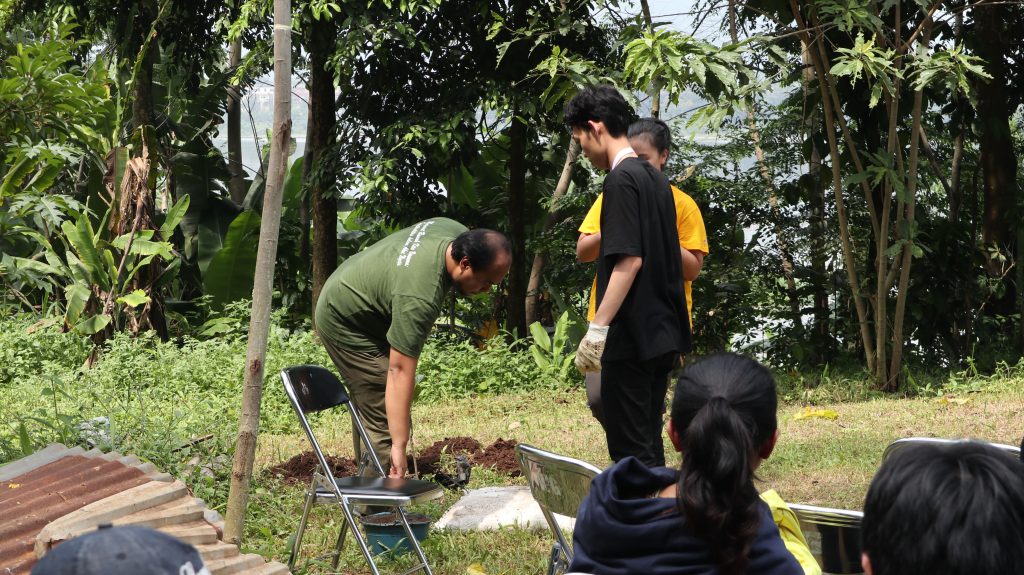
A total of 90 fruit tree seedlings were planted using organic fertilizer processed from household waste and livestock manure, then treated with a bio-compound solution. This method is not only environmentally friendly, but also provides added value for sustainable agriculture. The seedlings are expected to grow well and be utilized by the surrounding community, while also serving as a symbol of HI UNPAR’s tangible contribution to environmental conservation.
Writers: Genoveva Karrenia Putryanti and Nazwa

